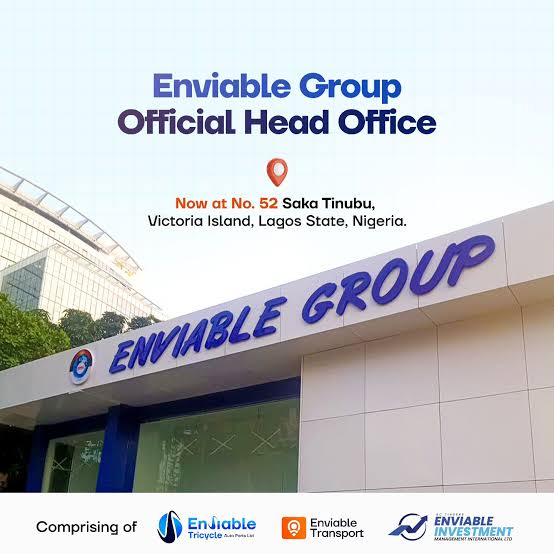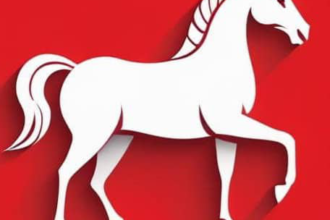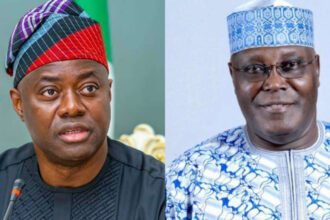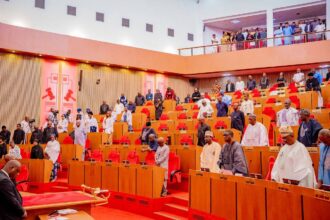
Nigeria’s diplomatic relations with the United States may be heading for turbulent waters as a new bill before the U.S. Congress proposes direct sanctions on 12 northern governors, several traditional rulers, and senior judicial officers accused of complicity in religious persecution and the enforcement of blasphemy laws.
The development follows President Donald Trump’s recent designation of Nigeria as a “Country of Particular Concern” (CPC) — a label reserved for nations accused of egregious violations of religious freedom. Trump, in his declaration, cited the “mass slaughter of Christians” and rising intolerance allegedly sanctioned or ignored by state authorities.
The announcement has sparked diplomatic unease in Abuja, as the U.S. Congress moves swiftly to consider the Nigeria Religious Freedom Accountability Act of 2025, sponsored by Republican Senator Ted Cruz. The proposed legislation seeks to impose visa bans, asset freezes, and travel restrictions on Nigerian officials found culpable of enabling or overlooking attacks on religious minorities.
On Friday, Trump posted a strongly worded message on his Truth Social platform, accusing Nigerian authorities of failing to protect Christians.
“Christianity is facing an existential threat in Nigeria,” Trump wrote. “Thousands of Christians are being killed. Radical Islamists are responsible for this mass slaughter. I am hereby making Nigeria a ‘Country of Particular Concern.’ But that is the least of it.”
He directed Secretary of State Marco Rubio to take “urgent diplomatic and legal measures” to address the situation and asked Congressman Riley Moore and Chairman Tom Cole of the House Appropriations Committee to “immediately look into this matter and report back.”
Trump’s statement has reignited debate about religious freedom and governance in Nigeria. While his remarks have been welcomed by some international human rights groups, many Nigerian officials have described them as “unfounded, inflammatory, and politically motivated.”
The Nigeria Religious Freedom Accountability Act of 2025, introduced in the Senate on September 9, outlines a comprehensive sanctions framework targeting Nigerian government and religious officials accused of human rights violations.
The bill mandates the U.S. Secretary of State to submit a list of Nigerian individuals who have “promoted, enacted, or maintained blasphemy laws” or “tolerated violence by non-state actors invoking religious justification.”
Within 90 days of the bill’s passage, those listed could face punitive measures including:
-
Visa bans preventing travel to the United States;
-
Freezing of U.S.-based assets;
-
Restrictions on access to international financial systems;
-
Public disclosure of their names on the State Department’s website.
Sources familiar with the draft legislation told The Washington Post that at least 12 state governors from northern Nigeria, along with several high-ranking emirs, Islamic clerics, and judges, have been “identified for investigation” based on reports from international watchdogs and U.S. embassy cables.
Although the list has not been made public, the officials are believed to include governors from states that have actively enforced sharia and blasphemy laws, such as Kano, Bauchi, Zamfara, Sokoto, and Jigawa.
This is not the first time the United States has cited Nigeria for religious rights violations.
In December 2020, under the Trump administration, Nigeria was placed on the Country of Particular Concern list for the first time. The designation was based on what the U.S. Department of State described as “systematic, ongoing, and egregious violations of religious freedom,” citing frequent Boko Haram attacks, farmer-herder clashes, and judicial enforcement of blasphemy laws.
Although Nigeria was removed from the list by President Joe Biden in 2021 following diplomatic engagement, Trump’s return to the political stage has revived the issue, this time with more severe consequences.
According to the U.S. International Religious Freedom Act, a CPC designation enables Washington to impose sanctions ranging from travel bans to suspension of security assistance.
Nigeria’s northern states operate under a dual legal system, combining civil and Islamic (sharia) law. In some of these states, individuals accused of blasphemy against Islam have faced harsh penalties, including imprisonment and even death sentences handed down by sharia courts.
Human rights organizations, including Amnesty International and Human Rights Watch, have long criticized these practices as violations of Nigeria’s constitutional commitment to secular governance.
Senator Ted Cruz, the bill’s sponsor, said his aim is to hold accountable those “responsible for maintaining oppressive systems.”
“For too long, Nigeria’s leaders have turned a blind eye to the killing and persecution of Christians. This legislation ensures that U.S. aid will not support regimes that oppress their citizens under the guise of religion,” Cruz said in a press statement.
The bill, he added, would “lock in accountability” and “send a clear signal that religious freedom is non-negotiable.”
Diplomatic experts warn that the proposed sanctions could strain bilateral relations between Abuja and Washington.
Dr. Kenechukwu Eze, an international relations lecturer at the University of Lagos, described the move as “a turning point in Nigeria’s foreign policy posture.”
“If this bill passes, it could redefine how the United States engages with Nigeria — not just as a security partner but as a human rights actor. It could also influence European Union policy toward Abuja,” he explained.
Eze further warned that the sanctions could affect Nigeria’s access to foreign aid, military support, and investment flows. In 2024 alone, Nigeria received approximately $700 million in development and security assistance from the U.S.
“Cutting or conditioning that aid would have serious implications for our counterterrorism efforts and humanitarian programs in the North-East,” he added.
The Nigerian government has yet to issue an official response to the bill, but sources within the Ministry of Justice told The Punch that efforts were underway to initiate quiet diplomacy through the Nigerian Embassy in Washington.
Meanwhile, the Christian Association of Nigeria (CAN) welcomed Trump’s action, urging Nigerian authorities to “take a hard look at the underlying causes of religious violence.”
However, the Supreme Council for Islamic Affairs (NSCIA) condemned the U.S. intervention, describing it as “a neo-colonial intrusion into Nigeria’s sovereign legal systems.”
“Nigeria does not need foreign lectures on how to maintain peace among its citizens. The sharia system operates under Nigeria’s Constitution, and those spreading propaganda about ‘Christian genocide’ are misrepresenting facts,” the NSCIA said in a statement.
Civil society organizations in Nigeria are divided. Some activists view the looming sanctions as an opportunity to pressure state governments into reforming their justice systems, while others fear it could worsen sectarian tensions.
As the U.S. Senate prepares to debate the Nigeria Religious Freedom Accountability Act, analysts predict an intense diplomatic standoff in the coming weeks. If the bill passes, it will mark the first time in history that sitting Nigerian governors, traditional rulers, and judges face direct U.S. sanctions over domestic legal practices.
For a country already grappling with economic challenges, insecurity, and image problems, the development could deepen its isolation on the international stage.
While the Trump administration insists its goal is to defend persecuted Christians, critics argue that the move could inflame sectarian divisions and undermine Nigeria’s fragile democracy.
Still, one thing is clear — the designation of Nigeria as a Country of Particular Concern has reignited global scrutiny on religious freedom in Africa’s most populous nation.





